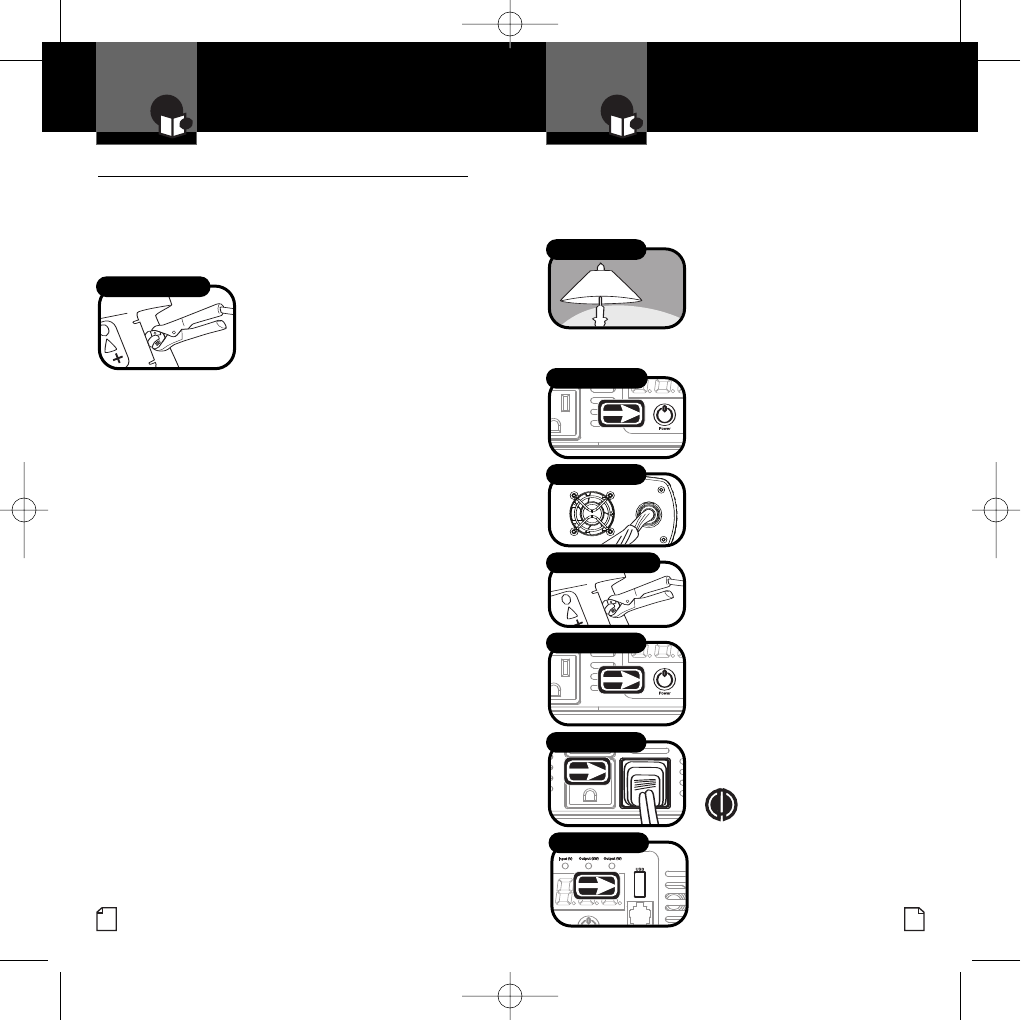
5
Nothing Comes Close to a Cobra
™
4
Quick Evaluation
Before Installation
I
ntro Operation Customer
Assistance
W
arranty
Notes
Notice
Main Icons
Secondary Icons
Caution Warning
I
nstallation
Introduction
Quick Evaluation
Before Installation
I
ntro Operation Customer
Assistance
W
arranty
Notes
Notice
Main Icons
Secondary Icons
Caution Warning
I
nstallation
Introduction
Quick Evaluation Before Installation
•
This section provides you with basic information about the
inverter and how to check its performance before installation.
Be sure to have on hand:
A 12 volt DC power source (such as a vehicle battery).
The power source must provide
between 11 and 15 volts DC and
be able to supply enough current to
run the test load. As a rough guide,
divide the wattage of the test load by
10 to get the current (in amperes)
the power source must deliver.
Cables to connect the power source to the inverter
(not included).
The cables must be as short and thick as possible in
order to reduce the voltage drop between the power
source and the inverter when it is drawing current
from the power source.
If the cable suffers an excessive voltage drop, the inverter
may shut down when drawing higher currents because
the voltage at the inverter dropped below 10 volts.
#4 AWG stranded copper cable is recommended.
It should be no longer than four feet (one and one-half
meters).
The end of the cable that connects to the inverter
must have its insulation stripped off for about
one-half inch (one and one-half cm) back from
the end, exposing the bare copper.
The other end of the cable, which connects to the power
source, must be terminated with a lug or other connector
that provides a secure, low resistance connection.
For example, if the power source is a battery, the cable
must be terminated with a battery terminal that clamps
to the post on the battery.
P
ower Source
A test load that can be plugged into the AC receptacle on
the inverter for short term testing at a low power level.
The following cables are recommended for testing low
power level test loads only.
Test Load Minimum
Power Cable Size
100W # 16 AWG copper
250W # 12 AWG copper
500W # 8 AWG copper
To check your inverter’s performance before installation:
1.
Turn the inverter off (see page 14
for details). If the power source is
a DC power supply, switch it off
as well.
2.Connect cables to power input
terminals (see page 8 for details).
3.Connect cables to power source
(see page 8 for details).
4.Check to make sure all
connections are secure.
5.Turn the inverter on. If the power
source is a DC power supply,
switch it on first.
6.Plug in the test load.
The inverter should supply power
to the load. If the inverter is not
working properly, refer to the
troubleshooting guide on page 20
or power and protection indicators
section on page 16.
NOTE A USB device can be
used to check the output
of the USB Outlet.
Intro Operation Customer
Assistance
Warranty
Notes
Notice
Main Icons
Secondary Icons
Caution Warning
Installation
Test Load
Power Button
Connect Terminals
P
o
wer Button
Connect
T
est Load
USB Outlet
Connect Power Source
Intro Operation Customer
Assistance
Warranty
N
otes
Notice
Main Icons
Secondary Icons
Caution Warning
Installation
Intro Operation Customer
Assistance
Warranty
Notes
Notice
Main Icons
Secondary Icons
Caution Warning
Installation
Intro Operation Customer
Assistance
Warranty
Notes
Notice
Main Icons
Secondary Icons
Caution Warning
Installation
Intro Operation Customer
Assistance
Warranty
Notes
Notice
Main Icons
Secondary Icons
Caution Warning
Installation
10275_CPI1575_PH3 8/14/07 8:38 AM Page 4

















